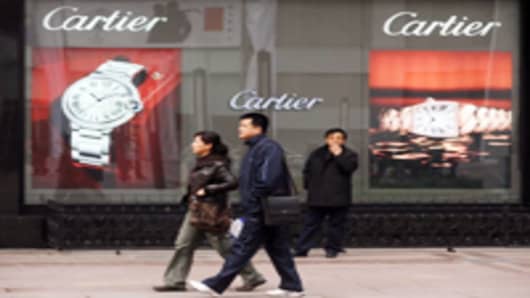I was dining at an ultra-luxury resort in Bangkok talking with a millionaire from Beijing about the rising anti-mainland Chinese sentiment in Hong Kong. "It is not unexpected,” the millionaire told me as she checked her shopping bags. She continued, "Every time I visit there, I feel underlying prejudice, whether during business meetings or when shopping at luxury outlets."
Lately, there has been a spate of protests in Hong Kong about the increasing number of mainlanders going there. Some protests have targeted the number of mainland womenwho give birth there to secure better health care and education opportunities for their children. 41,000 babies or 47 percent of total births in 2011 were to mainlanders, according to the Hong Kong government census. The government responded to criticism by cutting the 2012 quota of mainlanders allowed to give birth inpublic hospitals to 3,400 from 10,000.
Other demonstrators have zeroed in on the decision to allow mainlanders to drive their cars into the territory. Some protesters went so far as to take out a full-page ad in the Apple Daily newspaper likening mainlanders to locusts.
Many in China have not been surprised by these actions. In interviews with a dozen wealthy Chinese almost all of them told me whenever they travel to Hong Kong for business or pleasure, they feel “many look down” upon them and treat them "like country bumpkins."
I was in Hong Kong last week and asked some local people what they felt about these protests. I was surprised at the level of anger many expressed towards Chinese mothers. One man in his forties told me he did not want them to come anymore. Another 30-year-old woman said, “They should not be allowed here. It is crazy.”
The damage to Hong Kong’s reputation as a place that welcomes mainland Chinese is serious. Losing mainland money could spell trouble for Hong Kong’s retail and real estate sectors, which over the past five years have become increasingly reliant on it.
Wealthy mainland Chinese, like billionaire Jack Ma, founder of Alibaba , who have bought homes there, propped up Hong Kong luxury home prices during the financial crisis. Retailers like Omega and Cartier have seen sales soar there because of mainlanders seeking to shop without the high value added tax and tariffs on the mainland. My firm estimates that more than 50 percent of luxury products sold in Hong Kong are to mainlanders.
It is highly unlikely that the tide of mainland tourists to Hong Kong will drop greatly – cheaper prices, short flights, and general fun outweigh the nastiness, but it is clear more mainlanders, especially the ultra wealthy, will travel elsewhere instead of Hong Kong.
In interviews with a dozen people who said they expected to travel abroad in the next year, none told my firm that the anti-China sentiment would stop them from visiting Hong Kong completely, but 60 percent said they would strongly think about other countries to visit instead of Hong Kong now, because of the discrimination.
Brands need to adjust to the potential shift in destinations frequented by mainland tourists. Instead of opening more stores in Hong Kong, brands should start getting ready for an influx of Chinese in Europe and other destinations in Southeast Asia.
According to a company announcement, Harrod’s in London saw a 40 percent increase in sales in the first quarter of 2011 to Chinese tourists after it installed 75 point-of-sale terminals accepting Unionpay, a Chinese competitor to Visa and MasterCard so that Chinese could easily access more cash. Other brands operating boutiques in Europe are hiring more Mandarin-speaking salespeople.
Luxury brands like Chloe and Coach , are investing in new store openings in second and third tier cities in China rather than in Hong Kong. They are taking the luxury shopping experience directly to where consumers live. In 2011, my firm estimates, 40 percent of the $15.6 billion in luxury sales to mainland consumers were conducted on the mainland – we expect that number to hit 50 percent in the next three years as the allure of shopping in Hong King diminishes.
Shaun Rein is the founder and managing director of the China Market Research Group (www.cmrconsulting.com.cn) a strategic market intelligence firm, and is based in Shanghai.
He is the author ofthe upcoming book “The End of Cheap China: Economic and Cultural Trends that will Disrupt the World”published by John Wiley & Sons in the U.S. He does not own shares in any company mentioned. Follow him on Twitter at @shaunrein.


